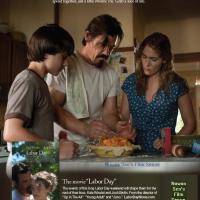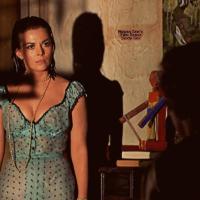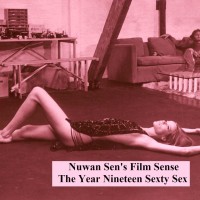We all know that Alfred Hitchcock had a penchant for blondes, yet he had wanted to actually work with Audrey Hepburn. Now it’s been confirmed, that he had actually started work on a film, back in the mid-1950’s, starring Audrey Hepburn in the lead, set in Paris, but the film never got completed. The film was temporarily titled, The Mysterious Disappearance of a Bride-to-be.

The Synopsis
To start off, the blonde victim in this movie, for change was not a female character, like in most Hitchcock films, but a male. None other than Roger Moore (a virtual unknown at the time) in a brief appearance, whose character gets killed off just the night before his wedding. Elizabeth Taylor too has a cameo as Moore’s fiancée.
The plot deals with Audrey Hepburn, playing detective, after her best friend (Elizabeth Taylor), goes missing hours after Moore’s character’s death. After going through a cornucopia of mysterious events, Hepburn’s character discovers that the puzzling trail leads back to none other than both, Hepburn’s character’s own ex-husband and current husband (supposedly to be played by Gregory Peck and Anthony Perkins, respectively).


Unfortunately the film couldn’t be completed in the 50’s, and by 1963 Hitchcock wanted to re-start the project, after completing The Birds (1963), and Hepburn having finished working on Charade (1963), and Taylor on Cleopatra (1963). Due to various other commitments, both the raven haired beauties had to decline the offer. Thus Hitchcock went on to work on his next project, Marnie (1964), with Sean Connery and Tippi Hedren. A pity, otherwise this spy thriller would have made for an enjoyable piece of Cinema.
The film footage was located in a vault of a retired American Professor, residing in Paris. Of course by now, some of you might have guessed that this is a story I concocted, for today, April fools day. And some of you might not have been so clever. I wish for the latter. Ha!! Happy April Fools Day.
Cheers
Nuwan Sen’s Film Sense
°°°°°°°°°°°°°°°°°°°°°°°°°°°°°°°°°°°°°°°°
ööööööööööööööööööööö


























That would have been a great film!
Ha!! Ha!! Thanks!
I would definitely have killed to see that for myself.
Ha!! So would I.
I may have come across your post a day late but you certainly fooled me.
Love the plot and the proposed cast. To think what Hitchcock could have done with these actors in their prime!
Thanks! I am glad it worked. Thanks for admitting it.
(Better a day late, than never 😉 )
True, Hitchcock and these stars together should have been able to bring out something marvelous.
NOOOOOOOOOOOOOO!!!! I did not get tricked! I know you were full of lies from the very start! Liar, liar, pants on fire!
Okay, I am lying. You got me good. Very good in fact! Very creative joke and you had me going! It actually sounds like a fascinating premise though. Why not homage Hitchcock and write your own screenplay? Spy thrillers are a rarity these days unfortunately. We need good old Hitchcock back!
OK! That explains why my pants have been on fire lately. Ha!!
Thanks! for the advise, I do have a few stories up my sleeve.
Haha Good one! You really had me going. And I wanted to know why no one else ever decided to do it. It sounded like it would have been quite good.
Yeah! No doubt it would have been good. My story, my copyright.
Am glad a lot of people couldn’t guess it was joke 🙂
A testament to the writing! 🙂
Thank you! That’s a lovely complement 🙂
I didn’t look at the time stamp on this post, so didn’t realize you posted this on April first. But I assumed the story was concocted all the same. Movies don’t often stop filming midway through, and a project involving The Most Beautiful Human Ever and Hitchcock would have been so well covered that I sure would have heard about it. 🙂
Still, it made for a fun read. Well done!
Thanks! Am glad at least you enjoyed reading it. 🙂